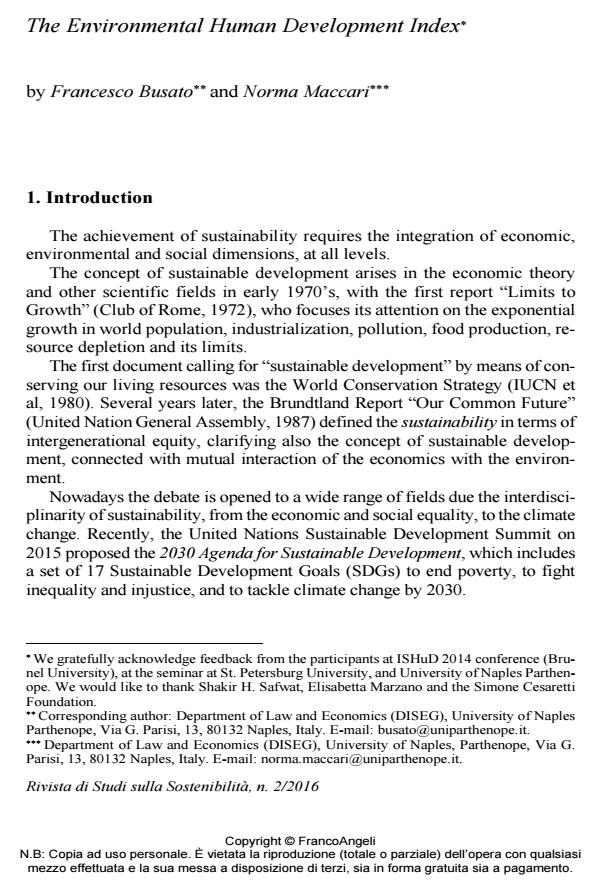The Environmental Human Development Index
Journal title RIVISTA DI STUDI SULLA SOSTENIBILITA'
Author/s Francesco Busato, Norma Maccari
Publishing Year 2017 Issue 2016/2
Language English Pages 14 P. 31-44 File size 248 KB
DOI 10.3280/RISS2016-002004
DOI is like a bar code for intellectual property: to have more infomation
click here
Below, you can see the article first page
If you want to buy this article in PDF format, you can do it, following the instructions to buy download credits

FrancoAngeli is member of Publishers International Linking Association, Inc (PILA), a not-for-profit association which run the CrossRef service enabling links to and from online scholarly content.
Human Development Index is one of the (if not the) most widely used measure of well-being, still missing, however, an "environmental dimension" (as suggested during the Rio+20-United Nation Conference on Sustainable Development, as part of Millennium Development Goals post-2015). This paper tackles this issue and introduces an original quantitative measure, named Environmental Human Development Index. The proposed index augments the Human Development Index with the Environmental Performance Index (a complete indicator of environmental quality of countries and a benchmark of policy goals achievement). The paper eventually simulates a country ranking using the new index.
Keywords: Sustainable development, human development index, environmental performance index, Kyoto Protocol.
Francesco Busato, Norma Maccari, The Environmental Human Development Index in "RIVISTA DI STUDI SULLA SOSTENIBILITA'" 2/2016, pp 31-44, DOI: 10.3280/RISS2016-002004